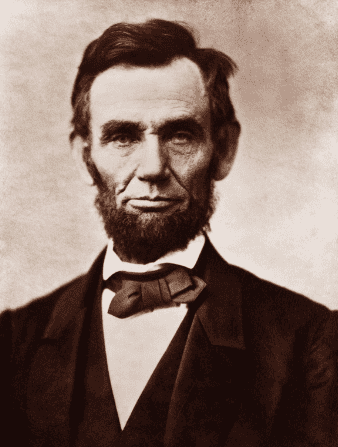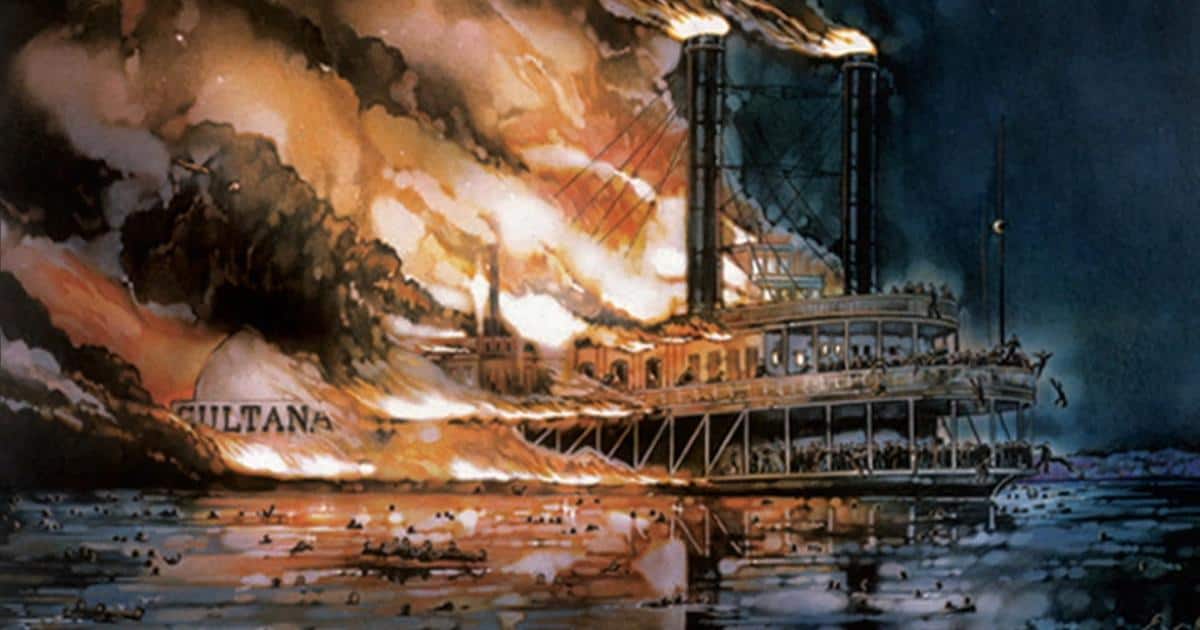In the annals of American history, certain events capture the imagination and memory of a nation, while others, equally significant, fade into obscurity. One such forgotten tragedy is the sinking of the steamboat Sultana on the Mississippi River in 1865. This disaster, which claimed more lives than the Titanic, remains one of the deadliest maritime disasters in U.S. history.

The Sultana: A Brief Overview
The Sultana was a paddlewheel steamboat built in Cincinnati, Ohio, in 1863. Measuring 260 feet long and capable of carrying 376 passengers, it was primarily used to transport cotton along the Mississippi River. During the final days of the Civil War, the Sultana took on a new role: ferrying Union soldiers home from Confederate prison camps.
The Prelude to Disaster
In April 1865, the Civil War had just ended, and the nation was reeling from the assassination of President Abraham Lincoln. Amidst the chaos, the Sultana docked in Vicksburg, Mississippi, to repair a leaking boiler. Despite the urgent need for thorough repairs, only a temporary patch was applied, leaving the boiler in a precarious state.
At the same time, the U.S. government was offering a per-head fee to steamboat operators for transporting recently released Union prisoners of war back north. This incentive led to widespread corruption, with steamboat operators often overcrowding their vessels to maximize profits. The Sultana’s captain, J. Cass Mason, was no exception.

The Overloaded Journey
On April 24, 1865, the Sultana left Vicksburg, carrying an estimated 2,400 passengers—six times its legal capacity. Most of these passengers were Union soldiers who had endured the horrors of Confederate prison camps like Andersonville and Cahaba. The overcrowded conditions on the Sultana were appalling. Soldiers were packed onto every available space, from the decks to the boiler room. Despite these dangerous conditions, the vessel went up the Mississippi River, stopping briefly in Helena, Arkansas, where a photograph showed the extreme overcrowding.
- OFFICIALLY LICENSED - Created in partnership with The HISTORY Channel, the worlds premier destination for historical storytelling since 1995
- OVER 2,410 QUESTIONS - Spanning the entirety of human knowledge, from the big bang to today!
- SIX DIVERSE CATEGORIES - Arts & Culture, Sports & Recreation, Science & Technology, Geography & Landmarks, People & Events PLUS the ALL-NEW 80s & 90s Category - So many different topics, theres something for everyone. Whether basking in the glow of victory or shouting I should have known that!, this game is a blast!
- AWESOME GIFT - Perfect idea for White Elephant and Secret Santa gift exchange! Our games make great Stocking Stuffers and funny Christmas gifts for men, teens, adults and friends!
- 2+ Players | Ages 14+ | 30-45 Minute Play Time
Prices pulled from the Amazon Product Advertising API on:
Product prices and availability are accurate as of the date/time indicated and are subject to change. Any price and availability information displayed on [relevant Amazon Site(s), as applicable] at the time of purchase will apply to the purchase of this product.
As an Amazon Associate, I earn commission from qualifying purchases.
The Catastrophic Explosion
In the early hours of April 27, 1865, tragedy struck. As the Sultana navigated north of Memphis, Tennessee, its boilers, strained beyond capacity, exploded with a thunderous roar. The explosion ripped through the decks, sending scalding steam and shrapnel everywhere. Passengers were thrown into the river, and the wooden structure of the boat quickly caught fire.
Panic ensued as survivors struggled to escape the inferno and reach the relative safety of the river. Many of the soldiers, weakened from their imprisonment, found it difficult to stay afloat in the frigid waters. Despite the heroic efforts of nearby vessels and residents who rushed to the scene, the disaster claimed the lives of approximately 1,800 people. It remains the deadliest maritime disaster in American history.

The Aftermath and Investigation
In the wake of the tragedy, an investigation was launched to determine the cause of the explosion and assign responsibility. It quickly became apparent that the Sultana had been dangerously overloaded and that the temporary boiler repairs in Vicksburg had been insufficient. Testimonies revealed that Captain Mason had been aware of the risks but had prioritized profit over safety.
Despite the clear evidence of negligence, no one was held accountable for the disaster. The captain perished in the explosion, and the chaotic aftermath of the Civil War overshadowed the tragedy, leaving many questions unanswered.
Why the Sultana Disaster Was Forgotten
Several factors contributed to the Sultana disaster’s obscurity in American history. The timing of the event played a significant role. The nation was already grappling with the assassination of President Lincoln and the end of the Civil War, events that dominated the headlines and public attention. The story of the Sultana, tragic as it was, became a footnote in a period of immense national upheaval.

Furthermore, the victims were primarily Union soldiers who had survived the ordeal of imprisonment only to perish in a maritime disaster. Their families, scattered across the country, mourned quietly without the collective national attention that might have cemented the event in the public consciousness.
Remembering the Sultana
Despite its relative obscurity, the Sultana disaster is remembered by dedicated historians and descendants of the victims. Memorials have been erected in various locations, including the Sultana Disaster Museum in Marion, Arkansas, which strives to educate the public about this forgotten tragedy.
Each year, commemorative events are held to honor the memory of those who perished. These efforts help ensure that the story of the Sultana is not entirely lost to history. The museum features artifacts, photographs, and personal stories from survivors, offering a poignant reminder of the human cost of the disaster.
Stories of Survival
Among the tales of tragedy, there are also remarkable stories of survival. One such story is that of Corporal William H. Armstrong of the 4th Iowa Cavalry. Armstrong was one of the many soldiers packed onto the Sultana, and he survived the initial explosion by clinging to debris in the river. After hours in the frigid water, he was rescued by a passing boat. His harrowing experience was documented in letters to his family, providing a personal glimpse into the chaos and heroism of that fateful night.
Another survivor, Private Charles M. Eldridge of the 8th Indiana Cavalry, recounted how he was thrown into the river by the explosion. Despite suffering from severe burns and injuries, he managed to swim to shore, driven by a desperate will to live. His survival story, like many others, is a testament to the resilience and determination of the human spirit in the face of unimaginable adversity.
The Sultana’s Legacy
While largely forgotten in the broader scope of American history, the Sultana disaster serves as an important reminder of the consequences of greed and negligence and the human cost of tragedy. It highlights the need for stringent safety standards and the importance of valuing human life over profit.
The Sultana’s legacy also underscores the resilience of those who survived and the enduring pain of those who lost loved ones. Though not widely known, their stories are integral to the fabric of American history, reminding us of the sacrifices and struggles of the past.










